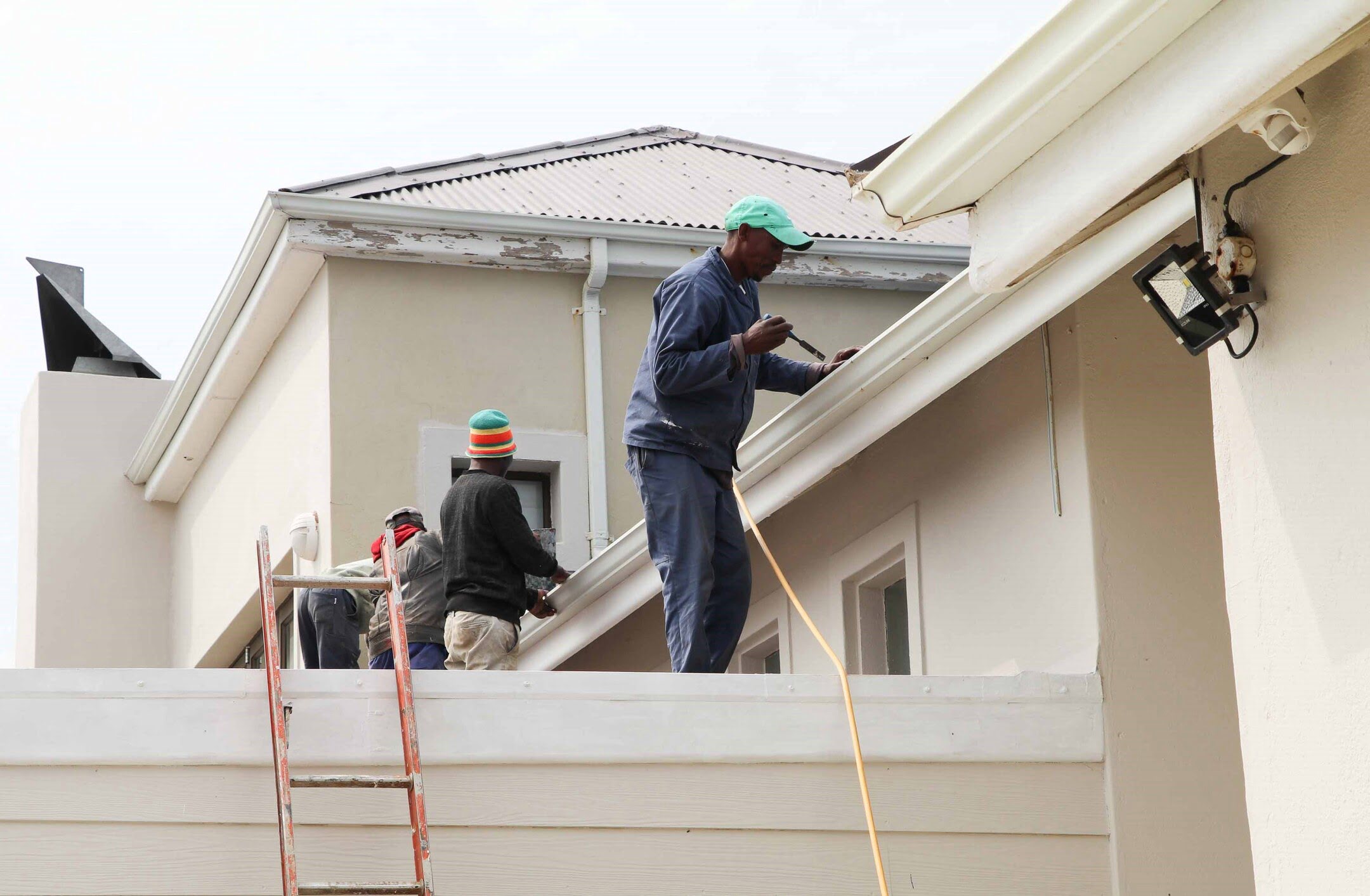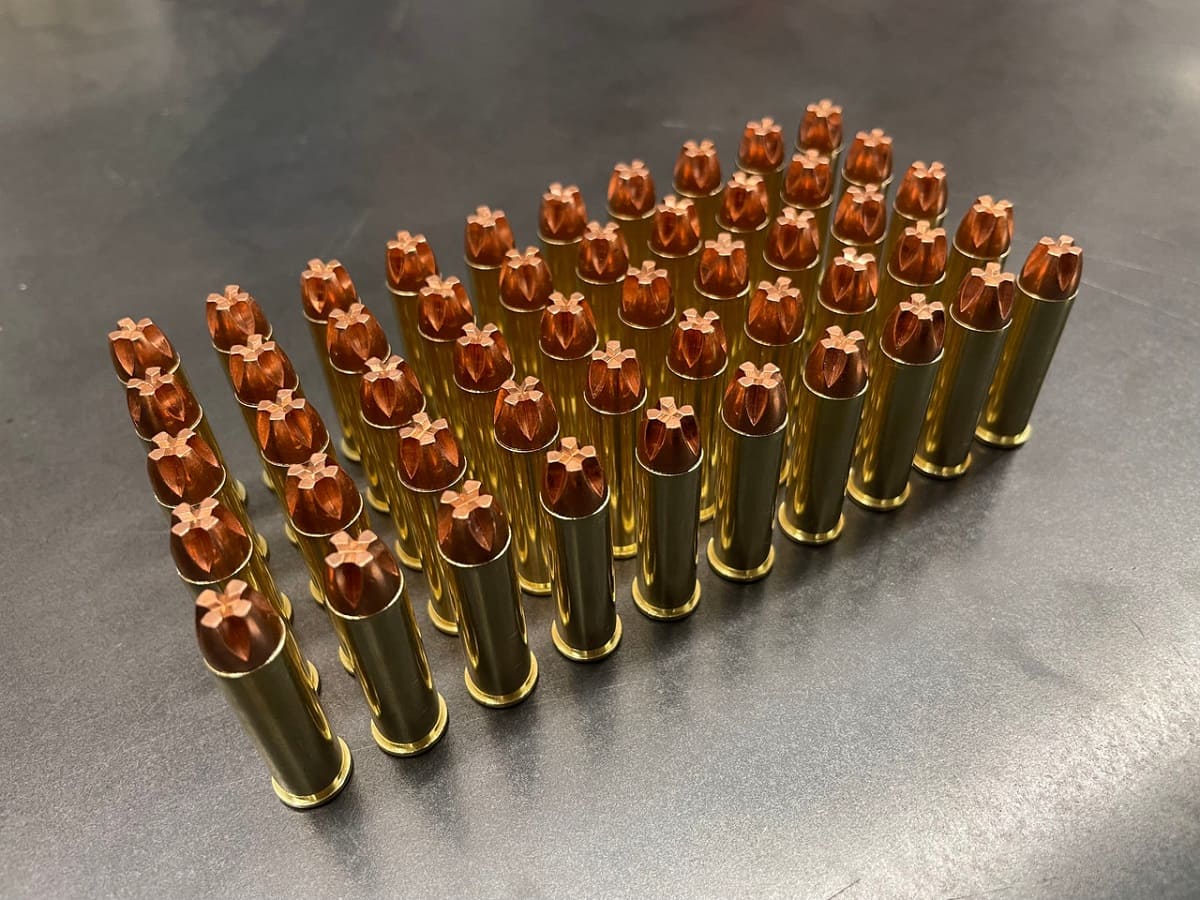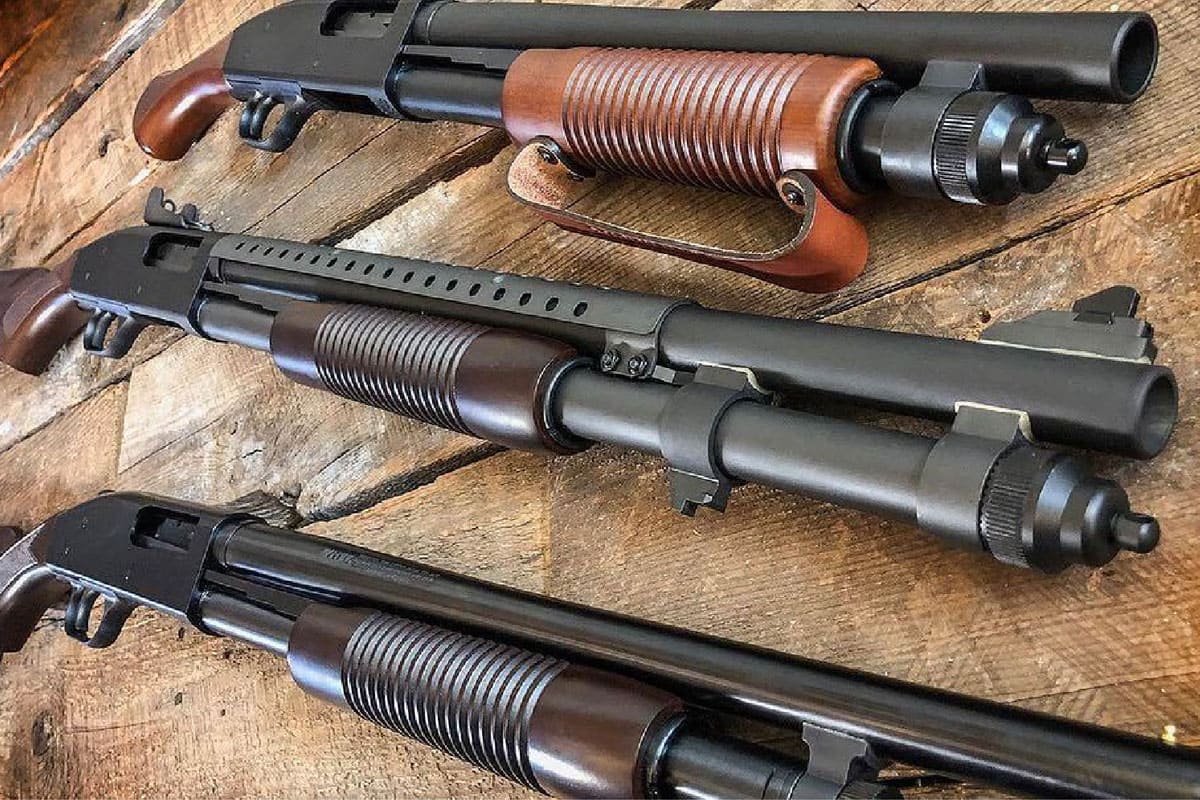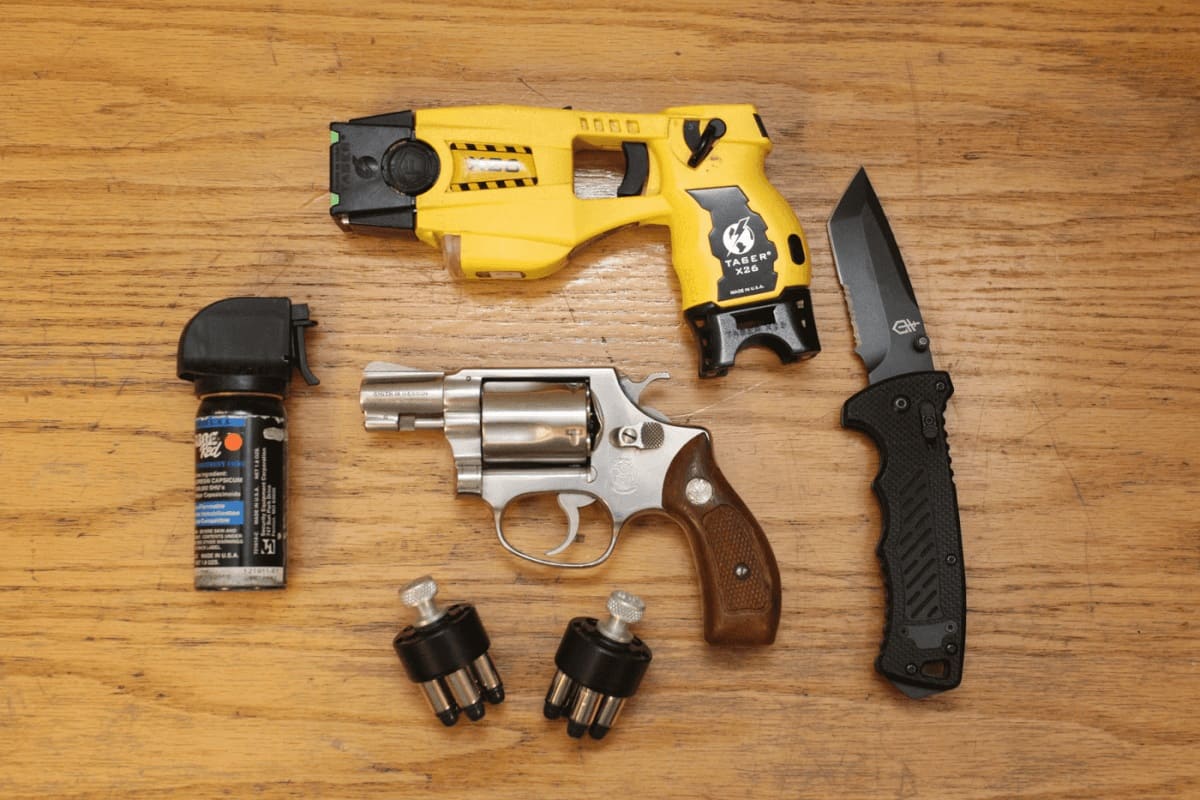Home>Home Security and Surveillance>What Is Legal In New York For Home Defense
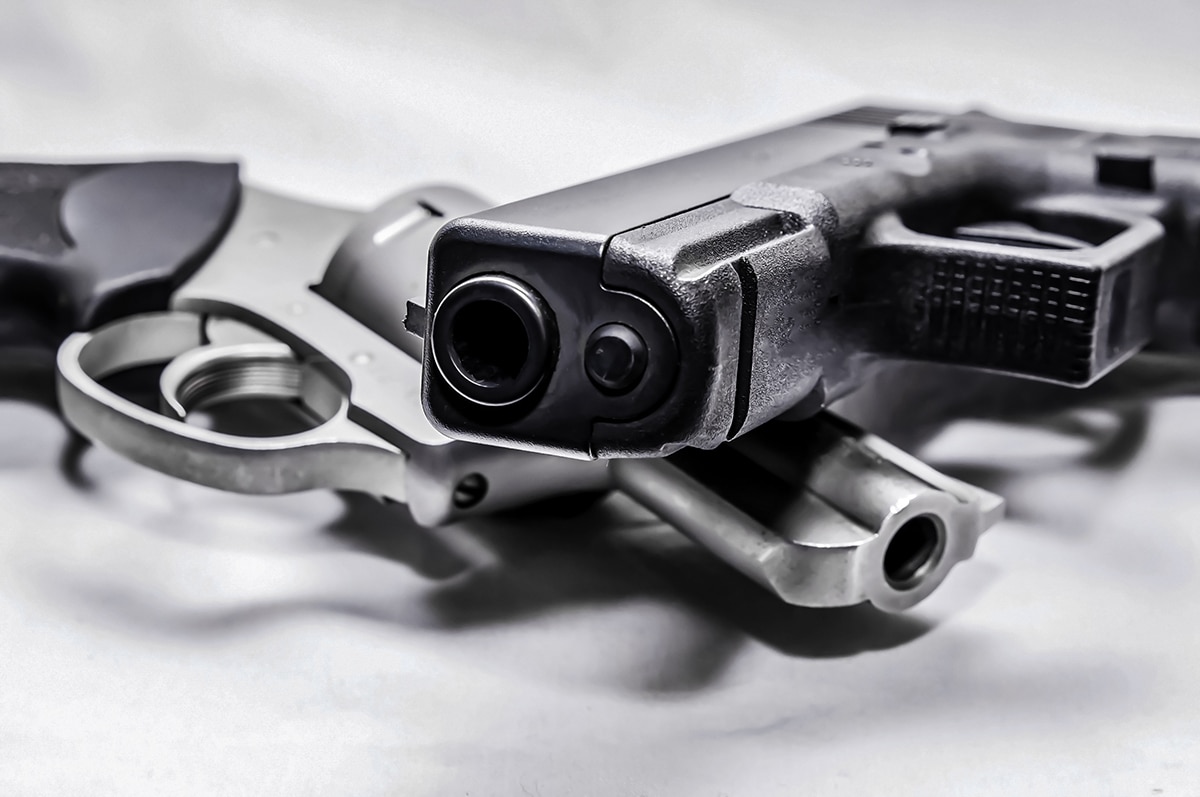

Home Security and Surveillance
What Is Legal In New York For Home Defense
Modified: March 6, 2024
Learn what is legal in New York for home defense and how home security and surveillance play a crucial role in protecting your property and loved ones.
(Many of the links in this article redirect to a specific reviewed product. Your purchase of these products through affiliate links helps to generate commission for Storables.com, at no extra cost. Learn more)
Introduction
When it comes to protecting our homes and ensuring the safety of our loved ones, having a reliable home defense system is paramount. In the state of New York, understanding what is legal and acceptable for home defense is crucial to ensure compliance with the law.
New York has specific regulations and laws pertaining to the possession and use of weapons for self-defense within the confines of one’s home. It is important to have a clear understanding of these regulations to make informed decisions about home security and protection.
In this article, we will explore the types of weapons allowed for home defense in New York, the possession and storage regulations, the Castle Doctrine law, the Stand Your Ground law, the use of deadly force, non-lethal self-defense options, and interactions with law enforcement.
By gaining a comprehensive understanding of the legal aspects surrounding home defense in New York, you can ensure that you are well-equipped to protect yourself and your loved ones within the boundaries of the law.
Key Takeaways:
- Protect Your Home Legally
In New York, you can legally use firearms, non-lethal weapons, and improvised tools for home defense. Remember to follow storage regulations and understand the Castle Doctrine law for protection within your home. - Stay Safe and Informed
Know your rights and responsibilities in self-defense situations. Consider non-lethal options, and interact with law enforcement calmly and cooperatively. Seek legal advice if needed to navigate home defense laws in New York.
Types of Weapons Allowed for Home Defense
When it comes to choosing a weapon for home defense in New York, it’s essential to be aware of the types of weapons that are legally permissible. The following are some of the common types of weapons allowed for home defense in New York:
- Firearms: In New York, individuals who are legally permitted to possess and carry firearms can use them for self-defense within their homes. Handguns, shotguns, and rifles are commonly used for this purpose. However, it is important to obtain the necessary permits and licenses to possess and carry firearms as per the state laws.
- Non-lethal Weapons: Non-lethal weapons offer alternatives to firearms for home defense. Some examples include pepper spray, stun guns, and tasers. While these weapons are not designed to cause severe injury or death, they can incapacitate an attacker and provide an opportunity to escape or seek help.
- Improvised Weapons: In certain situations, improvised weapons can be used for home defense. Everyday objects such as baseball bats, kitchen utensils, or objects that can be used for self-defense without causing excessive harm can be considered as improvised weapons. However, it is important to note that using any weapon, even improvised ones, should be done with caution and should only be used in self-defense situations.
It is crucial to understand the legality and restrictions associated with each type of weapon before choosing it for home defense. Familiarize yourself with the New York State laws and consult with legal experts if needed to ensure compliance.
Possession and Storage Regulations
In New York, there are specific regulations regarding the possession and storage of weapons for home defense. These regulations are in place to ensure the safe and responsible ownership of weapons. Here are some important possession and storage regulations to be aware of:
- Firearms Licensing: In order to possess a firearm in New York, individuals must obtain the appropriate licenses and permits. This includes a pistol license for handguns and a permit for long guns. The licensing process typically involves background checks, fingerprinting, and completion of a firearms safety course.
- Safe Storage: It is essential to store firearms securely to prevent unauthorized access and ensure the safety of those in the household. The New York Secure Ammunition and Firearms Enforcement (SAFE) Act requires firearms to be stored in a safe manner, either with a lock or in a safe container. This is especially important if there are minors in the household.
- Transportation: When transporting firearms in New York, they must be unloaded and locked in a suitable container. The ammunition should be stored separately from the firearms during transportation.
- Reporting Lost or Stolen Weapons: If a firearm is lost or stolen, it must be reported to law enforcement within a certain timeframe. This helps prevent the illegal use of the weapon and aids in its recovery.
It is crucial to adhere to these possession and storage regulations to ensure compliance with the law and maintain a safe environment within your home. Failing to comply with these regulations can result in legal consequences and compromise the safety of your household.
Castle Doctrine Law
The Castle Doctrine is a legal principle that allows individuals to use force, including deadly force if necessary, to protect themselves and their property within their own homes. This principle is based on the belief that a person’s home is their castle, and they have the right to defend it without the duty to retreat.
In New York, the Castle Doctrine law provides protection for individuals who use force, including deadly force, in self-defense situations within their dwelling. Under this law, there is no duty to retreat if you are inside your home and facing an intruder or an imminent threat.
However, it’s important to note that the use of force must be proportionate to the threat faced. The Castle Doctrine does not grant unlimited immunity or the right to engage in reckless behavior. The force used must be reasonable and necessary to protect oneself or others from harm.
It is crucial to understand that the Castle Doctrine only applies when the individual is lawfully inside their home or dwelling. It does not extend to situations outside of one’s property or in public spaces.
While the Castle Doctrine offers legal protection for using force in self-defense within your home, it is still important to exercise caution and only use force when absolutely necessary to protect yourself and others. Contact law enforcement authorities as soon as possible after an incident to report the situation and cooperate fully with their investigation.
Understanding the Castle Doctrine law in New York is crucial for homeowners to know their rights and obligations when it comes to protecting their homes and loved ones from intruders or threats.
Stand Your Ground Law
Unlike some other states, New York does not have a specific “Stand Your Ground” law. However, it’s important to understand self-defense laws in New York and how they apply in situations where individuals feel threatened and need to protect themselves or others.
In New York, the self-defense laws are based on the principles of necessity and proportionality. This means that individuals are allowed to use reasonable and necessary force to defend themselves or others from imminent harm, even if it involves using deadly force in certain circumstances.
Under New York law, there is generally a duty to retreat. This means that if a person can safely avoid the threat by retreating or seeking a safe escape route, they should do so before resorting to using force. However, there are exceptions to the duty to retreat, such as when an individual is in their own home or dwelling, commonly referred to as the Castle Doctrine.
In situations outside of the home, New York law requires individuals to use reasonable force and take steps to retreat if possible. However, if the individual reasonably believes that retreat would lead to serious physical injury or death, they may use force, including deadly force, to defend themselves or others.
It’s important to remember that the use of force must be proportionate to the threat faced. The individual must have a genuine belief that there is an imminent threat of serious bodily harm or death. Using excessive or unnecessary force can lead to legal consequences.
While New York does not have a specific Stand Your Ground law, individuals still have the right to defend themselves and others from harm. It is crucial to understand the self-defense laws in the state and consult with legal experts to ensure you are aware of your rights and responsibilities.
In any situation where force is used in self-defense, it’s important to contact law enforcement authorities as soon as possible and cooperate fully with their investigation.
In New York, you can legally use physical force, including deadly force, to defend yourself or others in your home if you reasonably believe it is necessary to prevent imminent death, serious physical injury, or a forcible felony. Always consult with a legal professional for specific advice.
Use of Deadly Force
In New York, the use of deadly force is a serious matter and should only be employed as a last resort in self-defense situations. It is essential to understand the legal considerations and requirements surrounding the use of deadly force to ensure compliance with the law.
New York law allows the use of deadly force when an individual reasonably believes that such force is necessary to protect themselves or others from the imminent threat of serious bodily harm or death. This concept is known as the “justification for the use of physical force” in self-defense.
However, it’s important to note that the use of deadly force must be proportionate to the threat faced. If there is an opportunity to escape or retreat safely, it is generally expected that individuals should do so rather than resorting to deadly force. The law emphasizes the duty to retreat if it is reasonably possible.
Additionally, it’s crucial to consider the concept of “imminence.” The threat must be immediate and impending for the use of deadly force to be justified. If the threat is not immediate or if there is no reasonable belief of imminent harm, the use of deadly force may not meet the legal standards for self-defense.
It is also important to note that the use of deadly force is subject to scrutiny and evaluation by law enforcement authorities and the court. The circumstances surrounding the use of deadly force will be thoroughly investigated, and individuals may be required to demonstrate that their actions were justified under the law.
Understanding the legal requirements and limitations for the use of deadly force is crucial to avoid potential legal consequences. It is recommended to seek legal advice or consult with experts to gain a clear understanding of your rights and responsibilities in self-defense situations.
Remember, the use of deadly force should always be a last resort when there is an imminent threat of serious bodily harm or death, and all other options for protection, escape, or de-escalation have been exhausted.
Non-lethal Self-defense Options
When it comes to self-defense, not all situations call for the use of deadly force. In fact, there are several non-lethal self-defense options available that can effectively deter or incapacitate an attacker without causing severe injury or loss of life. These non-lethal options provide individuals with alternative means of protection in situations where the use of deadly force may not be justified or desired.
Here are some common non-lethal self-defense options that are legal and widely accessible in New York:
- Pepper Spray: Pepper spray is a popular non-lethal self-defense tool that temporarily incapacitates an attacker by causing intense eye and respiratory irritation. It is legal for individuals to carry and use pepper spray in New York, but there are restrictions on its size and content. It should only be used in self-defense situations and according to the instructions provided.
- Stun Guns/Tasers: Stun guns and tasers are electroshock weapons that deliver a non-lethal electric shock to temporarily disable an attacker. In New York, the possession of stun guns and tasers is legal for individuals who are not prohibited by law from possessing firearms. However, it is important to note that stun guns and tasers must not be used in a way that causes serious physical injury or death.
- Personal Alarms: Personal alarms are small, portable devices that emit a loud noise when activated. They are designed to startle and deter potential attackers by drawing attention to the situation. Personal alarms are legal to carry and use in New York and can be a valuable tool for attracting help in an emergency.
- Self-defense Classes: While not a physical weapon, attending self-defense classes can provide individuals with valuable skills and techniques to protect themselves in dangerous situations. These classes teach various forms of martial arts, defensive tactics, and situational awareness, enabling individuals to better assess threats and respond effectively.
Non-lethal self-defense options can be effective in providing individuals with the means to protect themselves while minimizing the risk of causing severe harm. It is important to familiarize yourself with the proper use and limitations of these options to ensure their effectiveness in self-defense situations.
Remember, the goal of self-defense is to protect yourself and escape from a dangerous situation. Always prioritize personal safety and use non-lethal self-defense options responsibly and within the boundaries of the law.
Interactions with Law Enforcement
In the event of a self-defense situation or incident related to home defense in New York, it is crucial to understand how to interact with law enforcement authorities to ensure a smooth and legally compliant process. The following are some important considerations when dealing with law enforcement:
- Call 911: If you find yourself in a self-defense situation or emergency, contact emergency services immediately by dialing 911. Provide the operator with accurate information about the situation, your location, and any injuries sustained.
- Cooperate and Stay Calm: When law enforcement officers arrive at the scene, it is vital to remain calm and comply with their instructions. Cooperate fully by providing them with accurate details of what occurred, including any evidence or witnesses that can support your self-defense claim.
- Identify Yourself: It is crucial to clearly identify yourself as the homeowner or resident when interacting with law enforcement. Provide them with any necessary identification or documentation to confirm your identity and residence.
- Invoking Your Right to Remain Silent: Under the Fifth Amendment of the U.S. Constitution, you have the right to remain silent and refrain from answering any questions that may incriminate you. It is advisable to consult with legal counsel before providing a statement to law enforcement.
- Request Legal Representation: If you are taken into custody or face potential criminal charges, it is essential to seek legal representation. Contact a lawyer who specializes in criminal defense to protect your rights and guide you through the legal process.
- Follow Legal Proceedings: If your self-defense claim is investigated or goes to court, it is vital to follow all legal proceedings and attend court hearings as required. Work closely with your legal representation to present your case effectively and ensure a fair process.
Remember, interactions with law enforcement during self-defense incidents can greatly impact the outcome of your case. It is important to remain respectful, provide accurate information, and seek legal advice when necessary.
Understanding your rights and responsibilities when interacting with law enforcement in self-defense situations can help ensure a fair and just process as you navigate through legal proceedings.
Conclusion
Ensuring the safety and security of our homes is a top priority, and understanding the legal aspects of home defense is crucial. In New York, knowing what is legal and permissible for home defense can help homeowners make informed decisions and protect their loved ones within the boundaries of the law.
Throughout this article, we have explored various aspects of home defense in New York, including the types of weapons allowed, possession and storage regulations, the Castle Doctrine law, the lack of a specific Stand Your Ground law, the use of deadly force, non-lethal self-defense options, and interactions with law enforcement.
By being knowledgeable about the laws and regulations surrounding home defense, individuals can ensure compliance with the law while maximizing their ability to protect themselves and their loved ones. It is crucial to understand that the use of force should always be a last resort, and non-lethal options should be considered whenever possible.
Additionally, it is important to emphasize the importance of seeking legal advice in case of any questions or uncertainties regarding home defense in New York. Consulting with legal professionals who specialize in this area can provide individuals with the guidance and clarification needed to make informed decisions.
In conclusion, a comprehensive understanding of the legal aspects surrounding home defense in New York is essential for homeowners to protect their homes, loved ones, and themselves. By adhering to the laws and regulations, utilizing non-lethal self-defense options, and understanding how to interact with law enforcement, individuals can navigate through home defense situations with confidence and compliance with the law.
Remember, each self-defense situation is unique, and it is important to assess the circumstances carefully before taking any action. Prioritize personal safety, and when in doubt, consult legal professionals for guidance to ensure the proper handling of home defense situations in accordance with New York state law.
Frequently Asked Questions about What Is Legal In New York For Home Defense
Was this page helpful?
At Storables.com, we guarantee accurate and reliable information. Our content, validated by Expert Board Contributors, is crafted following stringent Editorial Policies. We're committed to providing you with well-researched, expert-backed insights for all your informational needs.






